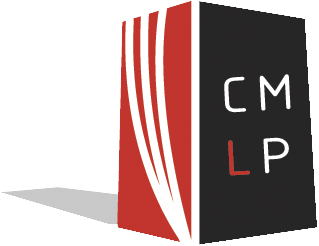Today, CMLP published extensive updates to its legal guide pages on the legal protections for anonymous and pseudonymous speech on the Internet. We overhauled the general page on First Amendment protections to reflect significant changes in the law over the past few years, and updated the state pages to include many new cases on the topic. As a result, we added new state pages for Maryland, Missouri, Montana, New Hampshire, Oregon, and Tennessee, and significantly revised the existing pages for Connecticut, the District of Columbia, Illinois, New Jersey, New York, and Pennsylvania.
 When we first wrote the anonymity sections in 2007-2008, there was still a good deal of uncertainty surrounding the procedural safeguards courts would put in place to protect the First Amendment right to speak anonymously/pseudonymously over the Internet. It was a live question whether courts would choose the "good faith" standard, the "motion to dismiss" standard, or the more protective standards set forth in Doe v. Cahill,
884 A.2d 451 (Del. 2005), and Dendrite International v. Doe, 775 A.2d 756
(N.J. App. Div. 2001).
When we first wrote the anonymity sections in 2007-2008, there was still a good deal of uncertainty surrounding the procedural safeguards courts would put in place to protect the First Amendment right to speak anonymously/pseudonymously over the Internet. It was a live question whether courts would choose the "good faith" standard, the "motion to dismiss" standard, or the more protective standards set forth in Doe v. Cahill,
884 A.2d 451 (Del. 2005), and Dendrite International v. Doe, 775 A.2d 756
(N.J. App. Div. 2001).
Today, the field is transformed. While some disagreement still lingers about details and semantics, the Dendrite and Cahill standards—or some variation thereof—are now the norm. Most fundamentally, this means that a would-be plaintiff must make a substantial legal and factual showing that his/her claim has merit before a court will unmask an anonymous or pseudonymous Internet speaker. These courts also impose a requirement that the plaintiff provide notice to the speaker whose identity is sought and an adequate opportunity to respond.
Here's my current tally of the cases applying or signalling acceptance of a heightened standard: Independent Newspapers, Inc. v. Brodie, 966 A.2d 432 (Md. 2009); Solers, Inc. v. Doe, 977 A.2d 941, 954-57 (D.C. 2009); Sinclair v. TubeSockTedD, 2009 WL 320408, at *2 (D.D.C. Feb. 10, 2009); A.Z. v. Doe, 2010 WL 816647 (N.J. Super. Ct. App. Div. Mar. 8, 2010); Swartz v. Doe, No. 08C-431 (Tenn. Cir. Ct. Oct. 8, 2009); Zherka v. Bogdanos, 08 Civ. 2062 (S.D.N.Y. Feb. 24, 2009); Krinsky v. Doe 6, 159 Cal.App. 4th 1154 (Cal. Ct. App. 2008); Doe I v. Individuals, 561 F. Supp. 2d 249, 254-56 (D. Conn. 2008); Quixtar Inc. v. Signature Mgmt. Team, LLC, 566 F. Supp.2d 1205, 1216 (D. Nev. 2008); Mobilisa v. Doe, 170 P.3d 712, 720-21 (Ariz. Ct. App. 2007); Greenbaum v. Google, 845 N.Y.S.2d 695, 698-99 (N.Y. Sup. Ct. 2007); In re Does 1-10, 242 S.W.3d 805, 822-23 (Tex. Ct. App. 2007); Reunion Indus. v. Doe, 2007 WL 1453491 (Penn. Ct. Comm. Pleas Mar. 5, 2007); McMann v. Doe, 460 F. Supp.2d 259, 268 (D. Mass. 2006); Best Western Int'l v. Doe, 2006 WL 2091695, at * (D. Ariz. 2006); Highfields Capital Mgmt. v. Doe, 385 F. Supp.2d 969, 975-76 (N.D. Cal. 2005); Doe v. Cahill, 884 A.2d 451 (Del. 2005); Dendrite International v. Doe, 775 A.2d 756 (N.J. App. Div. 2001).
Anonymous speech also broke into the popular press this past year with model Liskula Cohen’s successful effort to uncover the identity of the “Skanks in NYC” blogger. While a slight oddball in terms of its legal analysis, Cohen v. Google, Inc., 887 N.Y.S.2d 424 (N.Y. Sup. Ct. 2009), does not represent a significant departure from the cases listed above. If you disagree, recall that the Cohen court determined that a party seeking pre-action discovery must make a prima facie showing of a "meritorious cause of action" before obtaining the identity of an anonymous defendant. See id. at 426-27 & n.5. Acknowledging the First Amendment issues and citing Dendrite, the court said that New York law’s requirement of a prima facie showing “appear[s] to address the constitutional concerns raised in this context.” Id. at 427 n.5.
In other developments, the courts have started dealing more and more with situations where a plaintiff seeks the identity of an online speaker to serve as a witness, rather than as a defendant in a John Doe lawsuit. See, e.g., McVicker v. King, 2010 WL 786275 (W.D. Pa. Mar. 3, 2010); Sedersten v. Taylor, 2009 WL 4802567 (W.D. Mo. Dec. 9, 2009); Enterline v. Pocono Medical Ctr., 2008 WL 5192386 (M.D. Pa. Dec. 11, 2008). Our updates also track the handful of cases where courts have considered whether newspapers can invoke state shield laws to protect the identities of anonymous/pseudonymous commenters. See, e.g., Alton Telegraph v. Illinois, 08-MR-548 (Ill. Cir. Ct. May 15, 2009); Doty v. Molnar, No. DV 07-022 (Mont. Cir. Ct. Sept. 3, 2008); Doe v. TS, No. CV08030693 (Or. Cir. Ct. Sept. 30, 2008).
CMLP welcomes its readers to enjoy and make good use of these updates. Don't forget to keep us posted about new developments and remind us of cases we might have missed.




